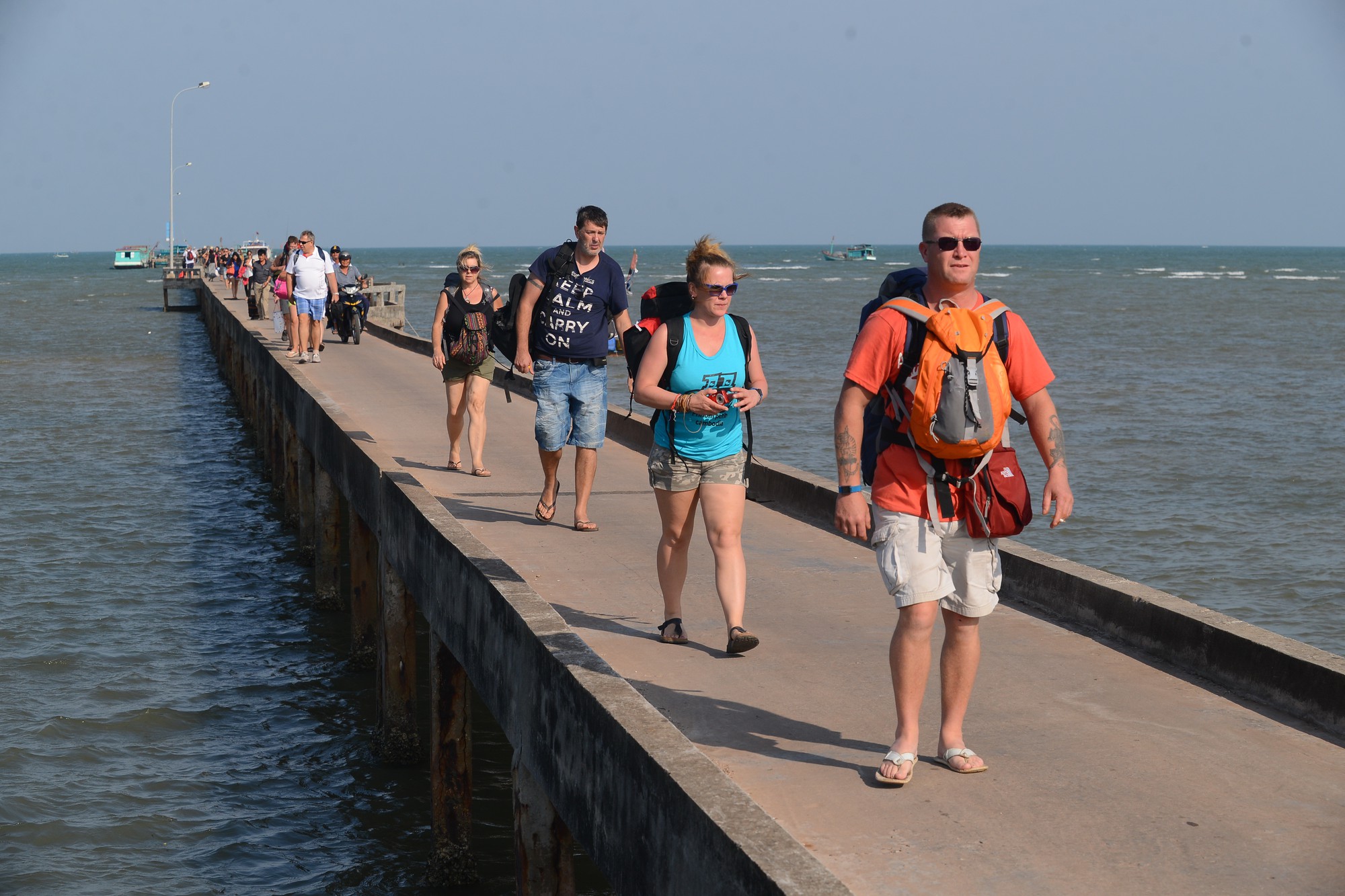Editor's note: Mark Barnes is a freelance journalist currently based in Hanoi, Vietnam. He sent this piece to Tuoi Tre News as the novel coronavirus disease (COVID-19) has infected 68 people in Vietnam, with most of the 52 recent cases being linked to foreigners and people returning from foreign countries.
Some businesses across Hanoi are refusing entry to foreigners of all backgrounds as a fear of foreigners takes hold in Vietnam. Signs in front of some gyms and cafés have explicitly denied entry to "foreign members" as the cases of COVID-19 among recent arrivals from Europe have risen.
Last week, Hoa Binh Gym and Kickfit Sports in Dong Da District put a whiteboard in the lobby of their building advising they would no longer be admitting "foreign members" to prevent the further spread of COVID-19.
“We cannot control the foreigner's footsteps recently,” said a spokesperson from the gym, referring to their recent travel history.
“We are not prohibiting foreigners who already have a membership from continuing to train with Kickfit and the gym. We are just temporarily suspending new members from other parts of the world from signing up,” she clarified.
This, however, did not concern Australian expat Kieren Smith, a gym regular (without a membership) who was turned away at the door.
“I can totally understand,” he said. “If 80 to 90 percent of their clientele are Vietnamese and they feel safer without foreigners there then I get it. It’s really not that big of a deal.”
Smith’s understanding is a welcome sign in an atmosphere that feels increasingly tense between foreigners and local Vietnamese.
As COVID-19 has taken root in Hanoi, once-friendly attitudes toward travelers and expats have become cautious and wary.
“It seems that they don't really care about preventing the virus by wearing masks or avoiding crowded places,” Hoa Binh Gym’s spokesperson said.
“We don't want to put the whole center, our staff, personal trainers, and, most importantly, our customers at risk.”
This is not an isolated incident.
AHA Cafe at 57 Nguyen Huu Huan Street in Hanoi has posted a sign stating they will “temporarily stop serving foreigners.”
This is just one more report among many of foreigners being stopped at the door.
In the most concerning case, on Sunday, an unconfirmed report emerged in Facebook’s Hanoi Massive Community group in which an expat and his Vietnamese partner claimed they were denied access to a medical clinic also in Dong Da.
“My pregnant Vietnamese wife has just been denied access to an ultrasound screening because she entered the hospital with me. Apparently certain clinics and hospitals now have a no foreigners policy (and this extends to their local partners),” he wrote.
This general change in attitude toward the expat community was first noticed in January, when anti-foreigner sentiment surfaced around Vietnam aimed at Chinese tourists.
Smith’s inability to use the gym in Dong Da suggests this has now spread to foreigners of European descent and more broadly, anyone who is not Vietnamese.
That said, this trend is not unique to Vietnam.
Around the world cases of xenophobia have been on the rise in line with the spread of COVID-19.
Chinese restaurants in Australia, for example, reported an 80 percent drop in sales in February.
In Bolivia, three Japanese students were quarantined for three days despite not ever having visited China.
This behavior, therefore, is a common part of being human.
What is unique in each case, however, is who exactly the ‘foreigner’ is, which depends on where and who you are.
For the staff at Hoa Binh Gym and Kickfit Sports in Dong Da, at least partly, that seems to be people of Caucasian appearance.
Whether or not this makes the policy justifiable is open to debate. That said, it is concerning either way and governments around the world have called for calm and unity.
Most prominently, UN Secretary-General Antonio Guterres has warned against allowing a rising tide of anti-foreigner sentiment to take hold.
“As we fight the virus, we cannot let fear go viral,” he said in a statement.
Indeed, fear has become somewhat of an epidemic in its own right and the threat is becoming very real.
Viruses spread. It’s what they have always done. It’s what they will always continue to do.
They cannot often be entirely avoided and they don’t very often entirely go away.
Similarly, xenophobia does not appear to go away so easily either.
When the panic has calmed down, foreigners and Vietnamese will need to live together again.
Whether this relationship can return to normal or, if not, what form it will take, only the future knows.
Like us on Facebook or follow us on Twitter to get the latest news about Vietnam!

















































